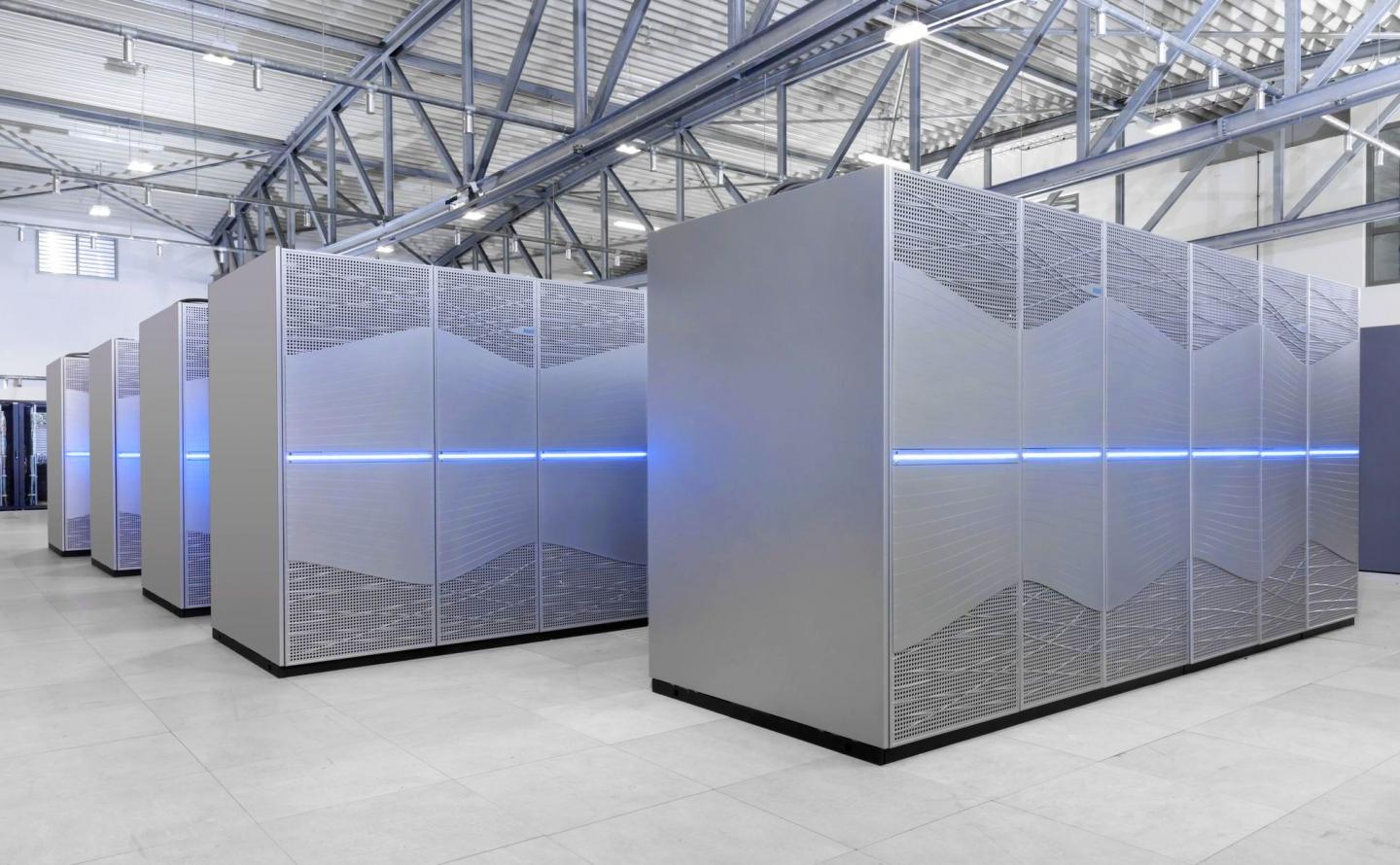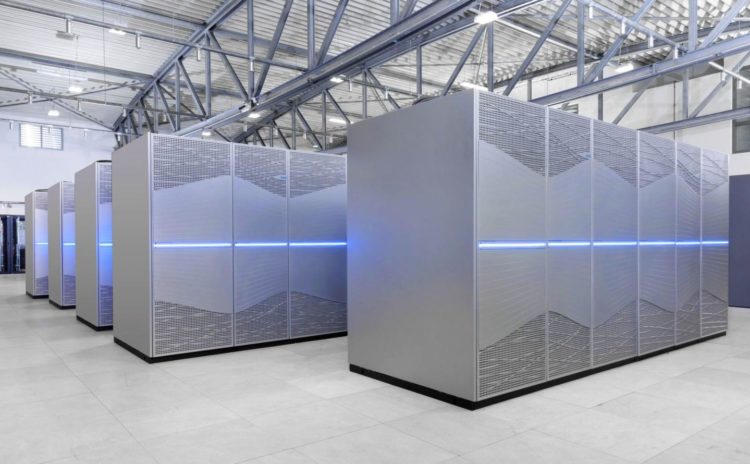Forschungszentrum Jülich, Atos and ParTec with NVIDIA and Mellanox plan expansion of the Jülich supercomputer

Credit: Copyright: Forschungszentrum Jülich / Ralf-Uwe Limbach
The Jülich supercomputer JUWELS will have a big brother, a so-called booster module, as Forschungszentrum Jülich, Atos, and ParTec have agreed. The module, equipped with several thousand graphics processors, is designed for extreme computing power and artificial intelligence tasks. It is designed as a Franco-German project together with NVIDIA and Mellanox using the co-design process. With the launch of the booster in 2020, the computing power of JUWELS will be increased from currently 12 to over 70 petaflops. This is equivalent to 70 trillion computing operations per second or the power of more than 300,000 modern PCs – no computer in Europe currently calculates faster.
The “Jülich Wizard for European Leadership Science”, JUWELS for short, follows the novel principle of the modular supercomputing architecture developed in Jülich. This allows different modules, which are tailored to different requirements, to be brought together using uniform system software and interconnected to form a single, ultra-flexible supercomputer.
The first module, the so-called cluster module, impresses with its versatility and ease of use. It went into operation in 2018 and was designed from the outset for expansion with additional modules. By far the largest of these modules is the forthcoming booster module equipped with graphics processors, which can be used to process large amounts of data and particularly compute-intensive program parts in parallel with maximum efficiency – for example for large-scale simulations or machine learning.
When the first module of JUWELS was installed, not all the components needed to build the booster were available on the market. Now all the parts required for a well-balanced high-performance computing module are available to enable this new extension to be built.
New supercomputer concept from Jülich
“The modular supercomputing architecture makes it possible to integrate the best available technologies flexibly and without compromise,” explains Prof. Thomas Lippert, Director of the Jülich Supercomputing Centre (JSC). “Modularity is our answer to the increasingly complex and heterogeneous requirements that application codes place on supercomputers. It allows us to realize exascale cost-effectively and will even make it possible to integrate exotic future technologies such as quantum computers”.
The construction of an exascale computer is being pursued worldwide as the next major step in the field of High Performance Computing (HPC). With one trillion (10^18) computing operations per second, such a computer is at least one order of magnitude more powerful than today’s fastest supercomputers.
The idea of modular supercomputing was conceived by Lippert and put into practice under the direction of Dr. Estela Suarez, JSC, together with ParTec in the EU-funded research projects DEEP and DEEP-ER with the help of many European partners from research and industry. “The JUWELS booster is groundbreaking for the development of a European exascale system, because it allows Europe’s leading role in the field of system architecture to come into play,” says Bernhard Frohwitter, CEO of ParTec.
Hardware partners from Europe, Israel and USA
The JUWELS booster is based on the BullSequana XH2000 supercomputer series from Atos. “Equipped with our latest most powerful accelerated blades the BullSequana platform provides Jülich with the most effective compute infrastructure as we advance towards exascale. It also supports Jülich’s commitment to sustainable development with our patented Direct Liquid Cooling warm-water solution,” said Agnès Boudot, Senior Vice President, Head of HPC & Quantum at Atos.
A unique feature of the modular JUWELS system is that it is equally suitable for the most demanding tasks in the field of simulations and machine learning, i.e. artificial intelligence, and can easily combine both areas. “JSC uses our next-generation GPUs for data centres in JUWELS’ booster module to meet these requirements with the highest energy efficiency,” said Marc Hamilton, VP, Solutions Architecture and Engineering, NVIDIA.
The extremely high network performance required for the modular computer comes from Mellanox. “Our 200 Gb/s HDR InfiniBand technology offers world-leading data throughput and extremely low latency, delivering the network performance that matches the processing power of the JUWELS Booster’s computing nodes. In addition, the flexible adaptive routing and control capabilities enable JUWELS to operate as a unified modular supercomputer,” said Gilad Shainer, SVP for Marketing at Mellanox Technologies.
Federal and state funding
The purchase of the booster is financed by the federal government and the state of North Rhine-Westphalia. JSC operates JUWELS as a member of the Gauss Centre for Supercomputing (GCS), the association of the three national supercomputing centres in Germany, which include the three computing centres of Forschungszentrum Jülich (JSC), the Bavarian Academy of Sciences and Humanities (LRZ), and the University of Stuttgart (HLRS).
The computing time is allocated via peer review procedures at the national and European levels. GCS and Forschungszentrum Jülich are supported by the Federal Ministry of Education and Research (BMBF), the Ministry of Culture and Science of North Rhine-Westphalia, the Ministry of Science, Research and the Arts of the German State of Baden-Württemberg, and the Bavarian State Ministry of Science and the Arts.
###
Media Contact
Tobias Schlößer
[email protected]
49-246-161-4771
Original Source
https:/





